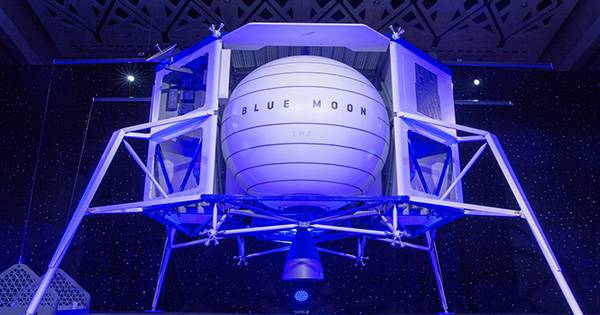NASA is returning to the Moon and expects to stay there. For a variety of reasons, the exact timeframe is still unknown, but the goal to conduct long-term explorations of our natural satellite necessitates a suite of technologies that must be tested and planned.
As a result, the space agency launched the Next Space Technologies for Exploration Partnerships initiative earlier this year (NextSTEP-2). NASA wants to cooperate with business partners to improve future human landing concepts, conduct risk-reduction operations, and even help the agency figure out how to best use private companies in future crewed lunar missions.
A total of $146 million in contracts were given to five companies. Blue Origin, Dynetics, Lockheed Martin, Northrop Grumman, and SpaceX were the companies. The project will take 15 months to complete.
In a statement, Kathy Lueders, NASA’s assistant administrator for Human Exploration and Operations at Headquarters in Washington, stated, “Establishing a long-term human presence on the Moon through recurring services using lunar landers is a major Artemis aim.” “This essential step establishes the groundwork for the United States to take the lead in knowing more about the Moon and learning how to live and work in deep space for future missions further into the solar system.”
NASA’s strategy for sending astronauts to and from the Moon will be shaped by the work of these companies in terms of technologies and requirements. These commercial companies will test vital technology and assess critical spacecraft like future moon landers. Before any such vehicle can be used in space, its performance, designs, construction standards, safety, and astronaut health must all be properly understood.
And the human landing system is one of several reasons why the initial objective of returning to the Moon by 2024 will not be met. SpaceX was given the contract to build the first lunar lander vehicle by NASA, and Jeff Bezos’ Blue Origin was not pleased. The corporation first appealed NASA’s decision to the US Government Accountability Office, then brought NASA to court after losing that appeal. As a result, NASA decided to put the lander on hold until the US Court of Federal Claims investigates. One way or another, this should be handled by November 1st.
“Collaboration with our partners is vital to fulfilling NASA’s long-term Artemis lunar exploration goals,” said Lisa Watson-Morgan of NASA’s Marshall Space Flight Center in Huntsville, Alabama. “We will develop a vibrant lunar economy while exploring new parts of the Moon for centuries to come by cooperating with innovative U.S. companies.”
















